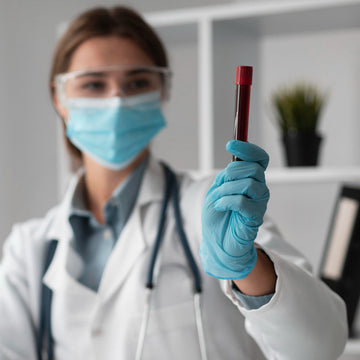Sexually transmitted diseases (STDs) are infections primarily spread through sexual contact. Despite the social stigma that often surrounds them, STDs are incredibly common. Understanding the symptoms and knowing when to get tested is crucial for maintaining sexual health and preventing the spread of infections. This guide from VivaTest provides an overview of common STD symptoms, the importance of STD test, and when to seek medical advice.
Common STD Symptoms
STD symptoms can vary widely depending on the infection, and some individuals may not experience any symptoms at all. Here’s a breakdown of common symptoms associated with various STDs:
1. Chlamydia
- Symptoms in Women: Abnormal vaginal discharge, burning sensation during urination, pain during intercourse, and abdominal pain.
- Symptoms in Men: Discharge from the penis, burning sensation during urination, and pain and swelling in one or both testicles.
2. Gonorrhea
- Symptoms in Women: Increased vaginal discharge, painful urination, vaginal bleeding between periods, and pelvic pain.
- Symptoms in Men: White, yellow, or green discharge from the penis, painful urination, and swollen testicles.
3. Syphilis
- Primary Stage: A single sore (chancre) at the infection site.
- Secondary Stage: Skin rashes and/or mucous membrane lesions.
- Latent Stage: No symptoms but still infected.
- Tertiary Stage: Severe medical problems affecting the heart, brain, and other organs.
4. Human Papillomavirus (HPV)
- Symptoms: Often asymptomatic. When symptoms do occur, they can include genital warts and, in some cases, precancerous changes in the cervix, anus, or throat.
5. Herpes Simplex Virus (HSV)
- Symptoms: Painful blisters or sores on the genitals, rectum, or mouth. Flu-like symptoms such as fever, body aches, and swollen lymph nodes during the first outbreak.
6. Human Immunodeficiency Virus (HIV)
- Acute HIV Infection: Flu-like symptoms such as fever, headache, and rash.
- Chronic HIV: Often asymptomatic initially, but as the virus progresses, it weakens the immune system, leading to opportunistic infections and cancers.
7. Trichomoniasis
- Symptoms in Women: Itching, burning, redness, or soreness of the genitals, discomfort with urination, and a thin discharge with an unusual smell.
- Symptoms in Men: Itching or irritation inside the penis, burning after urination or ejaculation, and discharge from the penis.
8. Hepatitis B
- Symptoms: Fever, fatigue, loss of appetite, nausea, vomiting, abdominal pain, dark urine, clay-colored stools, joint pain, and jaundice.
When to Get Tested
Knowing when to get tested for STDs is essential for early detection and treatment. Here are some general guidelines:
1. Routine Screening
- Sexually Active Individuals: Regular screening is recommended for sexually active individuals, especially those with multiple partners or those not consistently using condoms.
- Annual Check-ups: Incorporate STD screenings into your annual health check-ups.
2. After Unprotected Sex
- Exposure Risk: If you have had unprotected sex or suspect exposure to an STD, get tested as soon as possible. Some STDs can be detected within a few days, while others might require weeks to show up on a test.
3. Symptoms of STDs
- Symptomatic Testing: If you experience any symptoms associated with STDs, seek medical advice and get tested immediately.
4. New Sexual Partners
- Before Intimacy: It’s wise to get tested before becoming intimate with a new partner. Both partners should consider getting tested to ensure a healthy sexual relationship.
5. After a Partner’s Diagnosis
- Partner Notification: If a sexual partner tests positive for an STD, get tested regardless of whether you have symptoms.
Importance of Testing
Testing for STDs is vital for several reasons:
- Early Detection: Many STDs are asymptomatic initially. Early detection through testing allows for timely treatment, reducing the risk of complications.
- Preventing Spread: Knowing your STD status helps prevent the spread of infections to others.
- Peace of Mind: Regular testing can provide peace of mind, knowing your sexual health status.
- Health Management: Some STDs, if left untreated, can lead to serious health issues such as infertility, organ damage, or cancer. Testing enables appropriate management and treatment.
Understanding the symptoms of STDs and knowing when to get tested is crucial for maintaining sexual health. Regular screening, especially for sexually active individuals, and prompt testing when symptoms arise or after potential exposure can prevent serious health complications and curb the spread of infections. Always practice safe sex and consult a healthcare provider for advice tailored to your specific situation. Remember, early detection and treatment are key to managing and overcoming STDs effectively.


